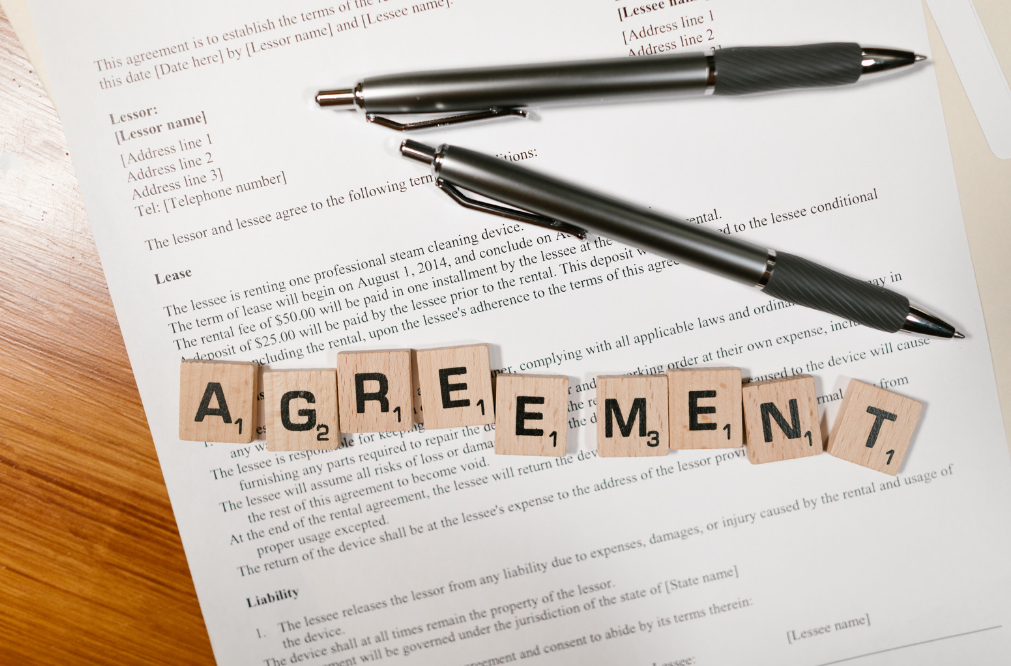Understanding a Letter of Agreement

A letter of agreement is a legally binding document that outlines the terms of a professional or business arrangement. Unlike a formal contract, it is often simpler and less complex but still establishes the responsibilities of each party. Legal agreements help ensure that both parties understand their obligations and prevent potential disputes.
- A letter of agreement should include clear and specific terms to avoid confusion or misinterpretation.
- Both parties must sign the document to make it enforceable.
- It serves as a record of the agreement, protecting both parties if a dispute arises.
- Letters of agreement are commonly used in business deals, employment arrangements, and service agreements.
Key Elements of a Letter of Agreement
While letters of agreement vary depending on the situation, there are essential components that should be included. Contract law establishes guidelines to ensure agreements are enforceable.
- Names and Contact Information: The full legal names and contact details of all parties involved must be clearly stated.
- Purpose of the Agreement: A detailed explanation of the reason for the agreement and what each party is expected to do.
- Payment Terms: If the agreement involves financial transactions, the payment structure should be outlined, including due dates and amounts.
- Duration and Termination: The start and end dates of the agreement and how either party can legally terminate it.
Why You Need a Letter of Agreement
A letter of agreement helps formalize an arrangement and serves as a reference if misunderstandings occur. Business contracts are essential in protecting your interests, whether in employment, partnerships, or freelance work.
- Prevents misunderstandings and disputes by clearly outlining expectations.
- Provides legal protection if one party fails to meet their obligations.
- Establishes accountability, ensuring both sides follow the agreed terms.
- Helps streamline professional relationships by keeping agreements simple and transparent.
How to Draft an Effective Letter of Agreement
A well-structured letter of agreement should be clear, concise, and legally sound. Legal writing standards recommend using straightforward language that both parties can easily understand.
- Use simple and direct language to ensure clarity for all parties.
- Define all key terms to avoid ambiguity in obligations or responsibilities.
- Include dispute resolution methods, such as mediation or arbitration, in case conflicts arise.
- Ensure both parties review and sign the document before proceeding with the agreement.
Enforceability of a Letter of Agreement
Although a letter of agreement is often less formal than a contract, it can still be legally binding if it meets certain conditions. Contract enforceability depends on whether all elements of a valid agreement are present.
- A letter of agreement is enforceable if it includes an offer, acceptance, and mutual consideration.
- Both parties must demonstrate clear intent to enter into a binding agreement.
- If disputes arise, courts may interpret the letter based on contract law principles.
- Agreements that violate public policy or legal standards may be deemed unenforceable.
Common Mistakes to Avoid
Failing to structure a letter of agreement properly can lead to legal complications. Contract disputes often arise from vague terms or missing details.
- Leaving out important clauses, such as termination conditions or payment terms.
- Using unclear or ambiguous language, which can lead to misinterpretation.
- Failing to specify what happens if a party breaches the agreement.
- Not obtaining signatures from all involved parties, making the document legally weak.
How Lawyers Corner Can Help
Whether you need assistance drafting a letter of agreement or ensuring your document is legally enforceable, Lawyers Corner connects you with legal professionals who can provide expert guidance. Having a well-structured agreement in place protects your interests and prevents future legal disputes.
For personalized legal support, visit Lawyers Corner’s contact page to get in touch with an attorney today. Ensure your agreements are legally sound and enforceable with expert legal assistance.

Related Items:





